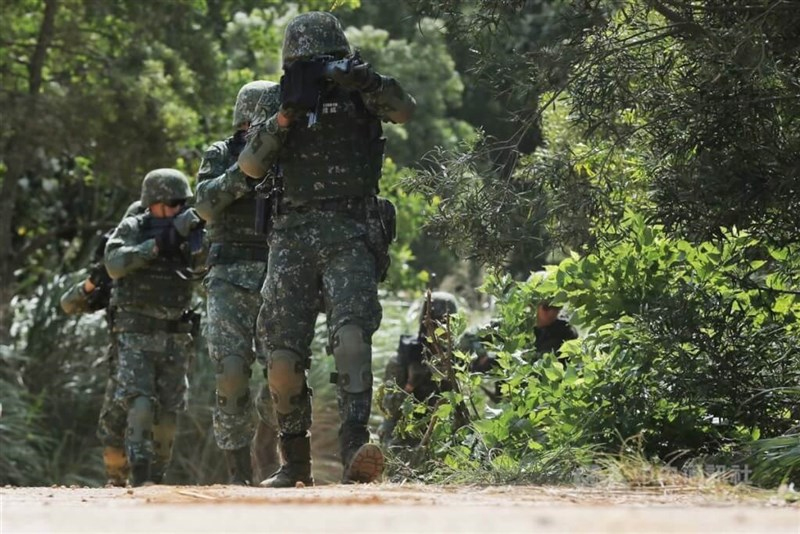U.S. Think Tank Urges Greater Taiwan Defense Spending, Timely U.S. Support Amid Rising China Threats
On the 46th anniversary of the Taiwan Relations Act (TRA), the Global Taiwan Institute (GTI) — a prominent Washington D.C.-based think tank — released a policy report calling for strengthened U.S.-Taiwan defense ties amid growing security challenges posed by China. The report, titled “U.S.-Taiwan Relations: Advancing Four Pillars of the Strategic Partnership,” outlines detailed recommendations to reinforce bilateral cooperation in four key areas: security, international engagement, economic partnerships, and people-to-people connections.
🛡️ The Core Security Recommendation: More Than Just a Number
One of the report’s central suggestions is that Taiwan must increase its defense spending, not necessarily tied to a specific GDP percentage, but instead focused on demonstrating the political will and capability to deter full-spectrum aggression from China — including military strikes, economic coercion, cyber attacks, and gray zone tactics (like disinformation and blockades).
In response, the GTI further recommended that Washington strengthen its own defense industrial base, to reduce delays in delivering arms and technologies to Taiwan. This reflects a growing concern about the U.S. defense backlog and Taiwan’s over-reliance on foreign arms procurement.
Original Insight: GTI is implicitly warning about Taiwan’s limited self-sufficiency. The island’s current defense posture heavily depends on U.S. weapons, which can be delayed due to U.S. capacity limits or political shifts. Building up indigenous defense capabilities would offer Taiwan a more sustainable long-term strategy.
💰 Taiwan’s Defense Spending: The Debate Over Numbers
While GTI avoided prescribing a specific GDP ratio, others have not. Elbridge Colby — recently confirmed as U.S. Undersecretary of Defense for Policy — echoed former President Donald Trump’s position that Taiwan should increase defense spending to 10% of GDP, an unusually high bar more typical of wartime economies.
However, Brent Christensen, former director of the American Institute in Taiwan and GTI report co-author, dismissed this as impractical. He noted that Taiwan’s actual national defense readiness includes not just military budgets, but also civil defense infrastructure, community readiness, and societal resilience, which are often undercounted in defense GDP figures.
💬 Taiwan’s Current Defense Budget: Cuts and Political Pushback
Taiwan’s defense budget for 2025 is currently set at NT$647 billion (US$20 billion), approximately 2.45% of GDP. However, NT$8 billion has already been cut and NT$90 billion frozen by the opposition-controlled Legislative Yuan, illustrating the political friction over military spending.
President Lai Ching-te has pledged a special budget to increase defense spending to over 3% of GDP, but approval remains uncertain.
Contextual Insight: The GTI report’s timing is strategic. With Taiwan’s opposition bloc controlling the legislature and the U.S. presidential election on the horizon, the report is a subtle push for both domestic consensus and international alignment.
US-Taiwan relations: Advancing four pillars of the strategic partnership
The GTI report didn’t just focus on defense. It also emphasized:
- Joint training and planning: Improving the coordination between U.S. and Taiwanese military forces, especially in responding to hybrid threats.
- Strengthening civil-military integration: Encouraging Taiwan’s citizens to take more active roles in national defense, including reservist programs and community preparedness.
- Economic resilience: Highlighting the need for Taiwan to diversify trade partnerships and strengthen strategic industries (e.g., semiconductors) from foreign influence.
- International engagement: Urging Washington to continue advocating for Taiwan’s inclusion in global organizations, especially health and security networks.
🧠 Why This Matters
This report comes as Taiwan faces unprecedented pressure from Beijing, including military drills, economic bullying, and cyber attacks. It also follows a series of delayed U.S. arms deliveries, which have raised concerns in Taipei.
The key takeaway from the report is not simply “spend more,” but rather spend smarter, faster, and more locally — developing a self-reliant, adaptable defense model with strong support from Washington.
❓ FAQs
Why is Taiwan being urged to increase its defense spending?
Due to growing military and coercive threats from China, the Global Taiwan Institute recommends Taiwan expand its defense capabilities to secure its sovereignty and deter aggression.
What percentage of GDP is Taiwan currently spending on defense?
As of 2025, Taiwan has budgeted approximately 2.45% of GDP for defense. President Lai has proposed a special budget to raise it beyond 3%, pending legislative approval.
What did U.S. official Elbridge Colby suggest?
He proposed Taiwan should spend around 10% of GDP on defense, a view dismissed as unrealistic by other experts like Brent Christensen.
What role should the U.S. play, according to GTI?
The U.S. should improve timely delivery of military equipment, strengthen its defense industrial base, and help Taiwan enhance its domestic defense industry.
Does defense spending alone guarantee security?
No. Experts emphasize that societal resilience, civil defense, and international diplomacy are equally important components of Taiwan’s broader defense strategy.
What is the Taiwan Relations Act?
Passed in 1979, it forms the legal foundation for U.S.-Taiwan relations after diplomatic ties were severed. It includes a commitment to provide Taiwan with defensive weapons.


